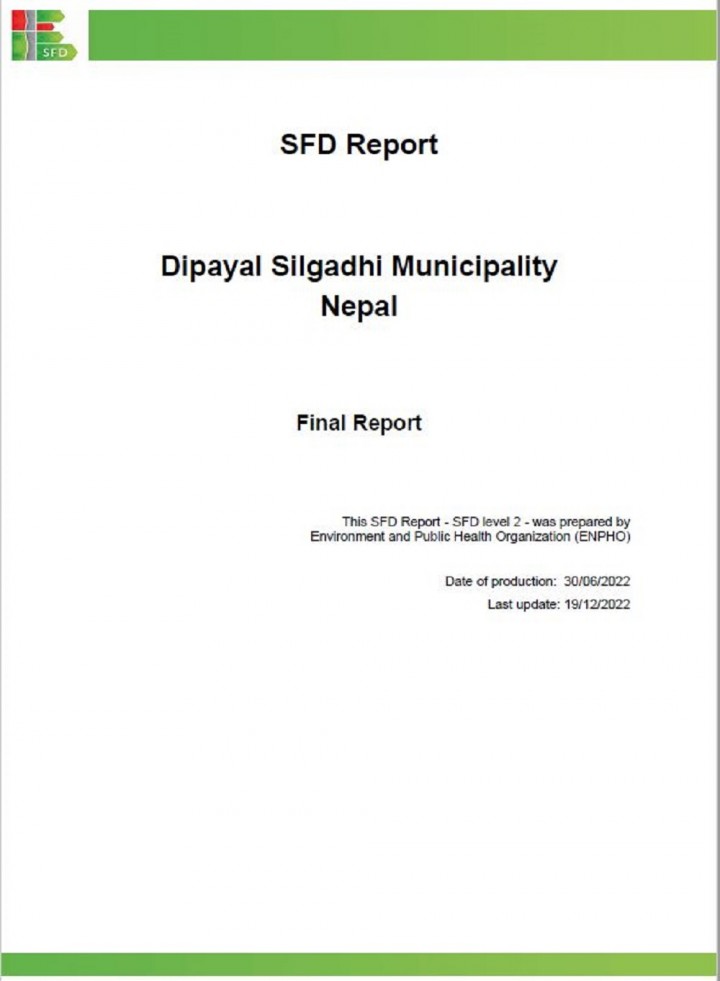
Author(s):
Published in: 2022
Pages: 50
Publisher: Environment and Public Health Organization (ENPHO)
SFD Intermediate Report - Dipayal Silgadhi Municipality, Nepal
Dipayal Silgadhi municipality is the district headquarters of Doti District in Sudurpashchim Province of Nepal. The former district headquarters of Far Western Development Region, Dipayal Silgadhi lies in the lesser Himalayas on the bank of Seti River at 29°16â²N 80°56â²E. The municipality comprises nine wards, the smallest local government unit. (Municipality, 2018).
The total population of the municipality is 32,941, with male and female population percentage of 49.24% and 50.26%, respectively. The family size of the municipality is 4.99 (MoFAGA, 2017).
The overview of different sanitation technologies across the sanitation value chain in the municipality is briefly explained in this section. Basic sanitation coverage in the municipality is only 98.07%. The families without their own toilets defecate in open places or use a neighbourâs toilet.
Although there is a lack of sewerage network and a Wastewater Treatment Plant (WWTP), 2.0% of the population have a connection of their toilet to an open drain and water bodies near their houses without any treatment which indicates unsafe sanitation practice.
36% of Households (HHs) have a toilet connected to a lined tank with impermeable walls and open bottom whereas 5.5% have constructed a toilet connected to a fully lined tank. HHs with a toilet have constructed a circular containment, specifically, 1% have constructed unlined pits, 47% have constructed single pits and 0.9% have constructed twin pits.
There are nine public toilets in the municipality where floating population and service seekers are high. These toilets are in the bus park areas, highway road, tudikhel (open ground space), local market area, near temples and other populated areas.
Only 25% of containments have been emptied at least once since the installation. Both traditional manual scavenging and mechanical emptying of the containments are practised in the municipality. Among the containments that have been emptied at least once, only 6.2% were mechanically emptied by private desludging service providers. The mechanical emptying facility is provided by private desludgers of Dhangadhi sub-metropolitan city who travel to Dipayal Silgadhi municipality once or twice every year to provide the service.
Dipayal Silgadhi does not have a treatment plant for wastewater or faecal sludge. Lack of treatment plant in the municipality has led 83% of FS emptied to be applied unsafely in the farmlands and a few percentage of FS emptied to be dumped into forest areas and nearby water bodies.
Keywords
SFD Intermediate, Nepal


